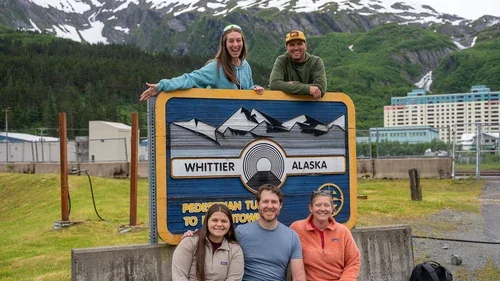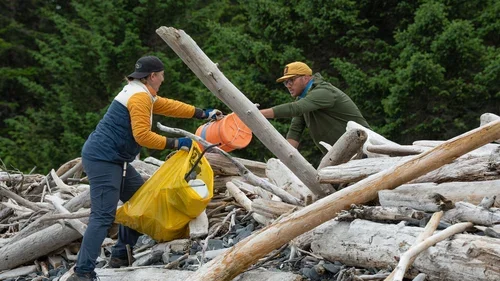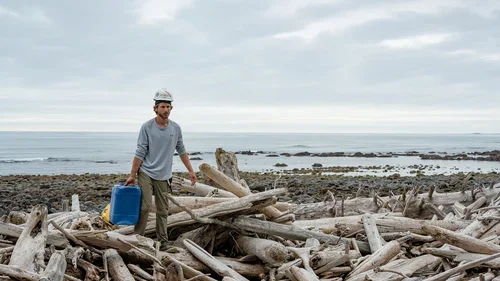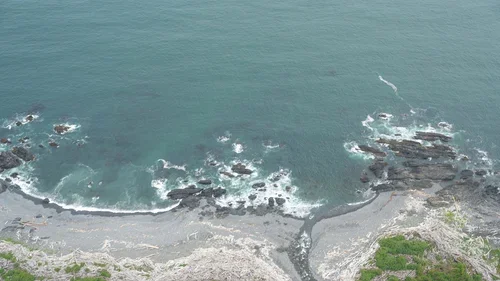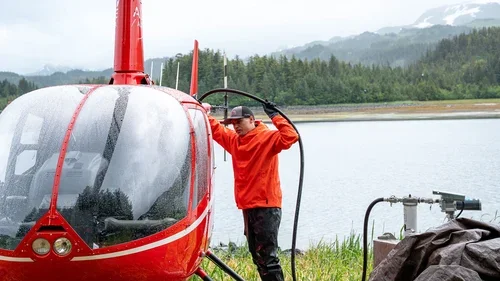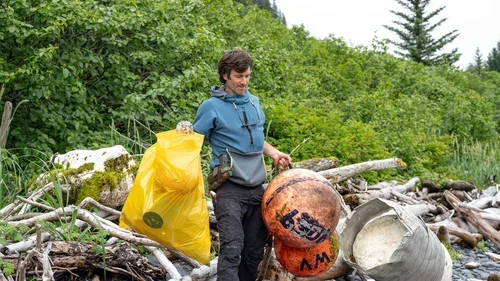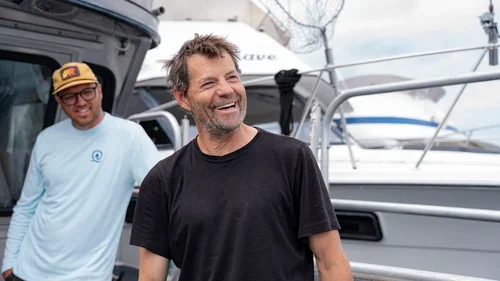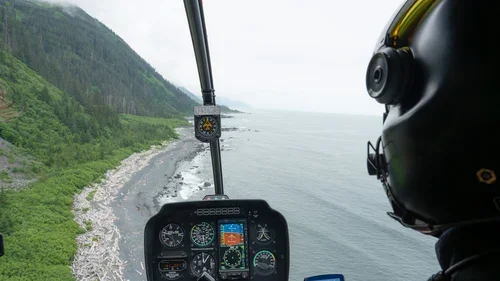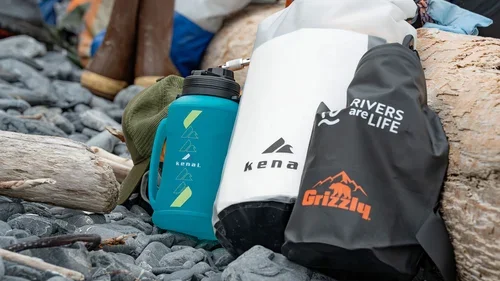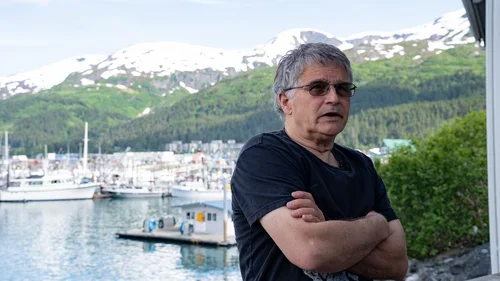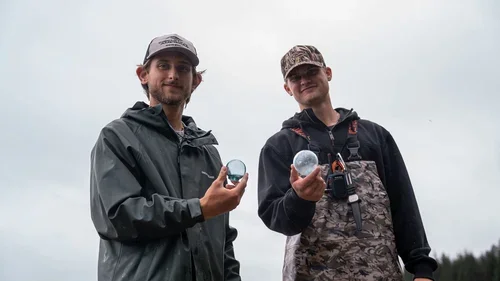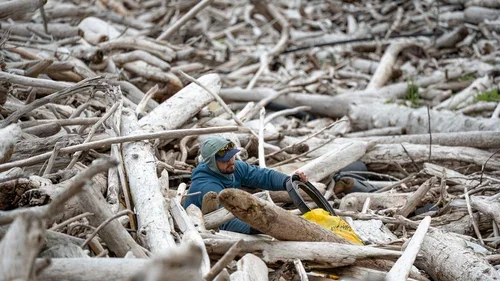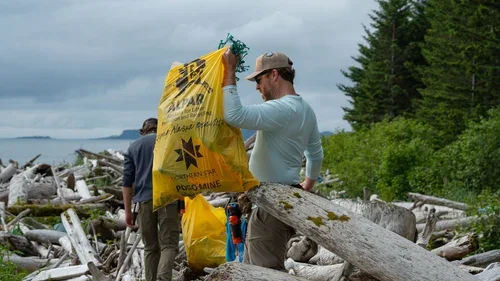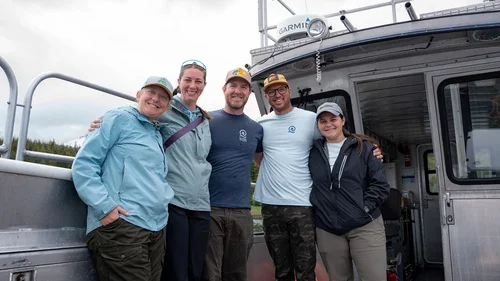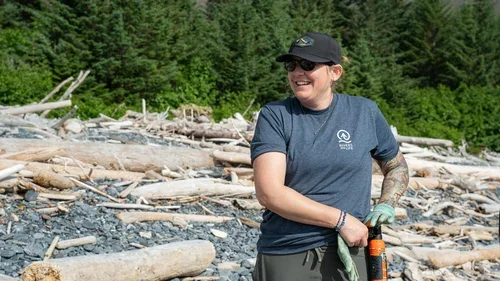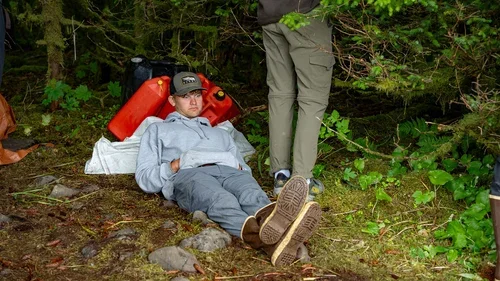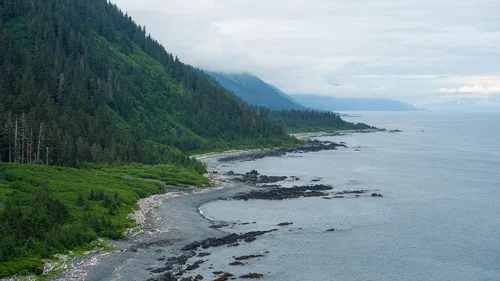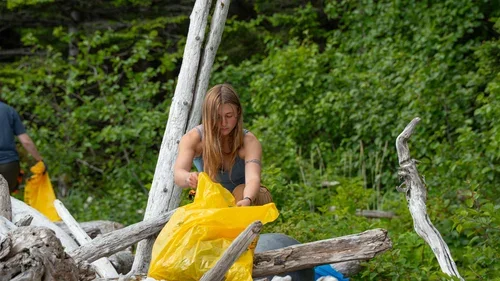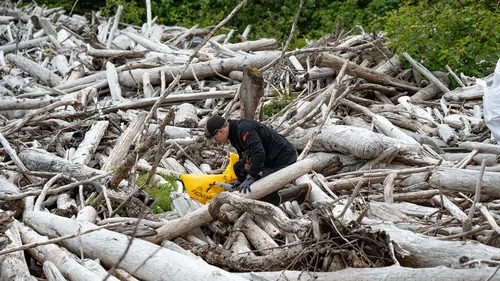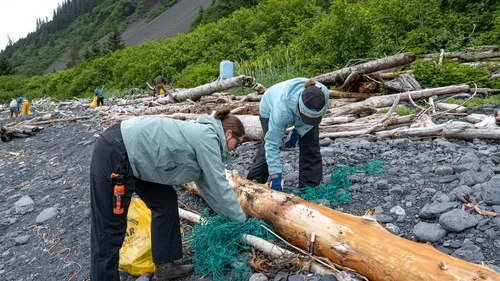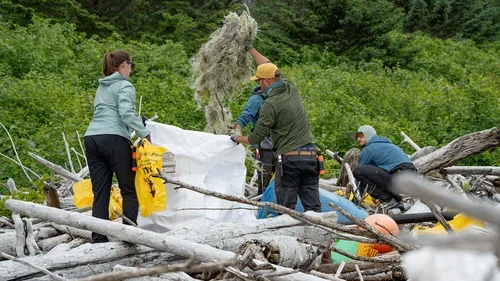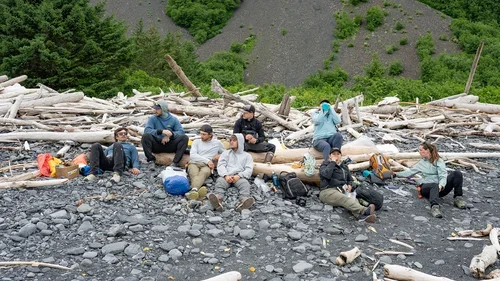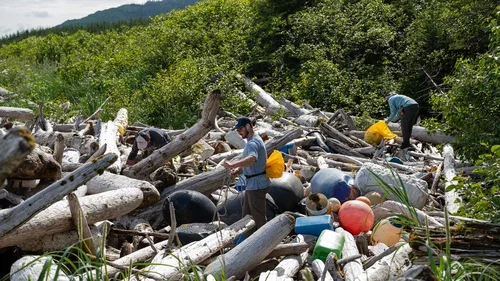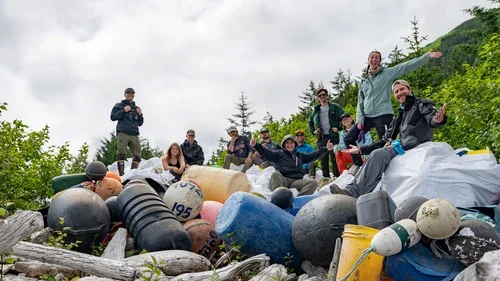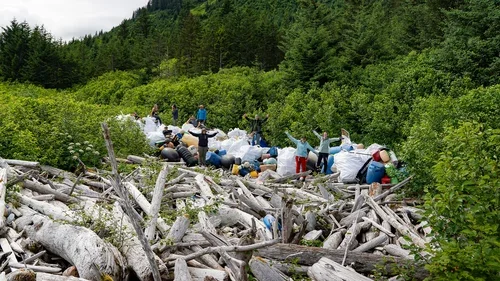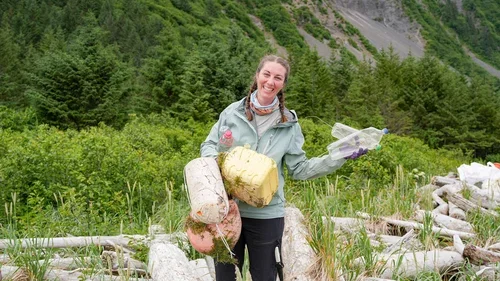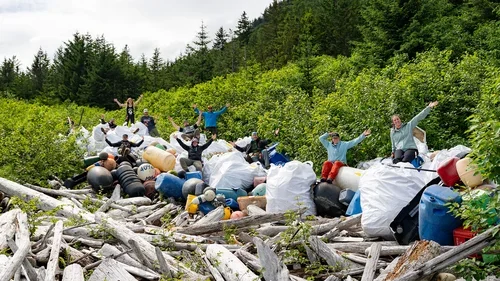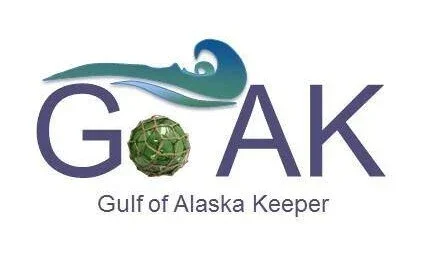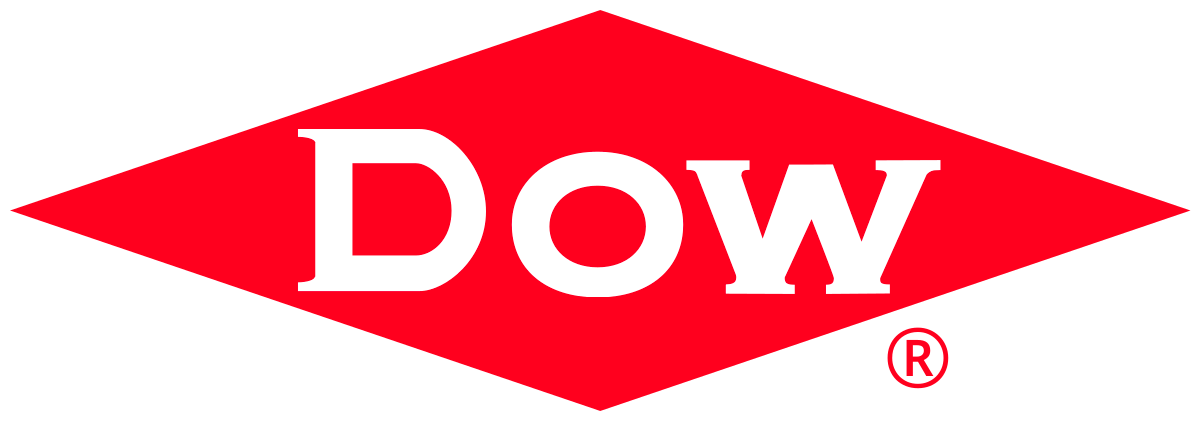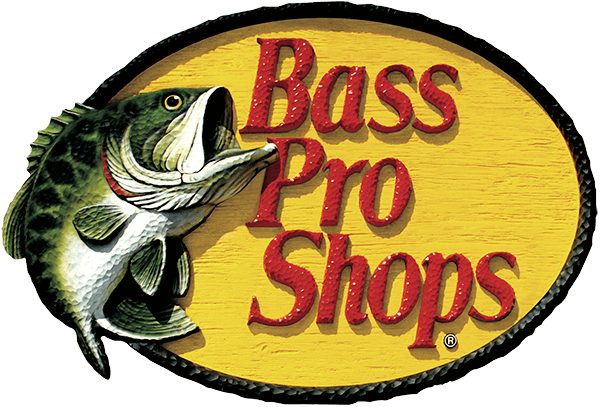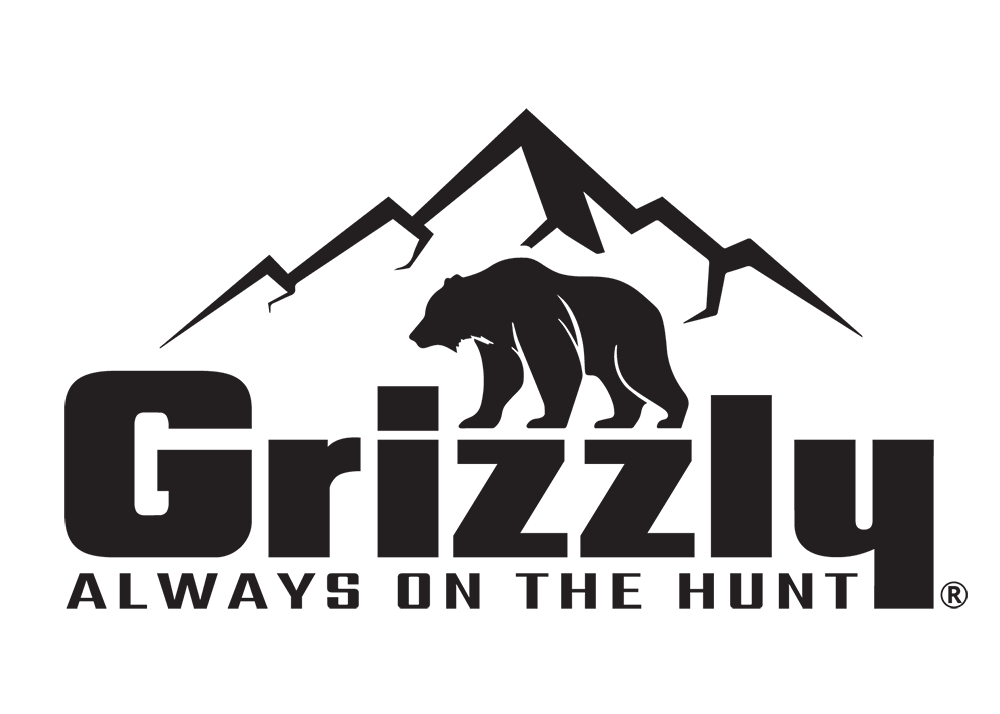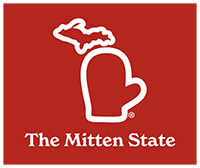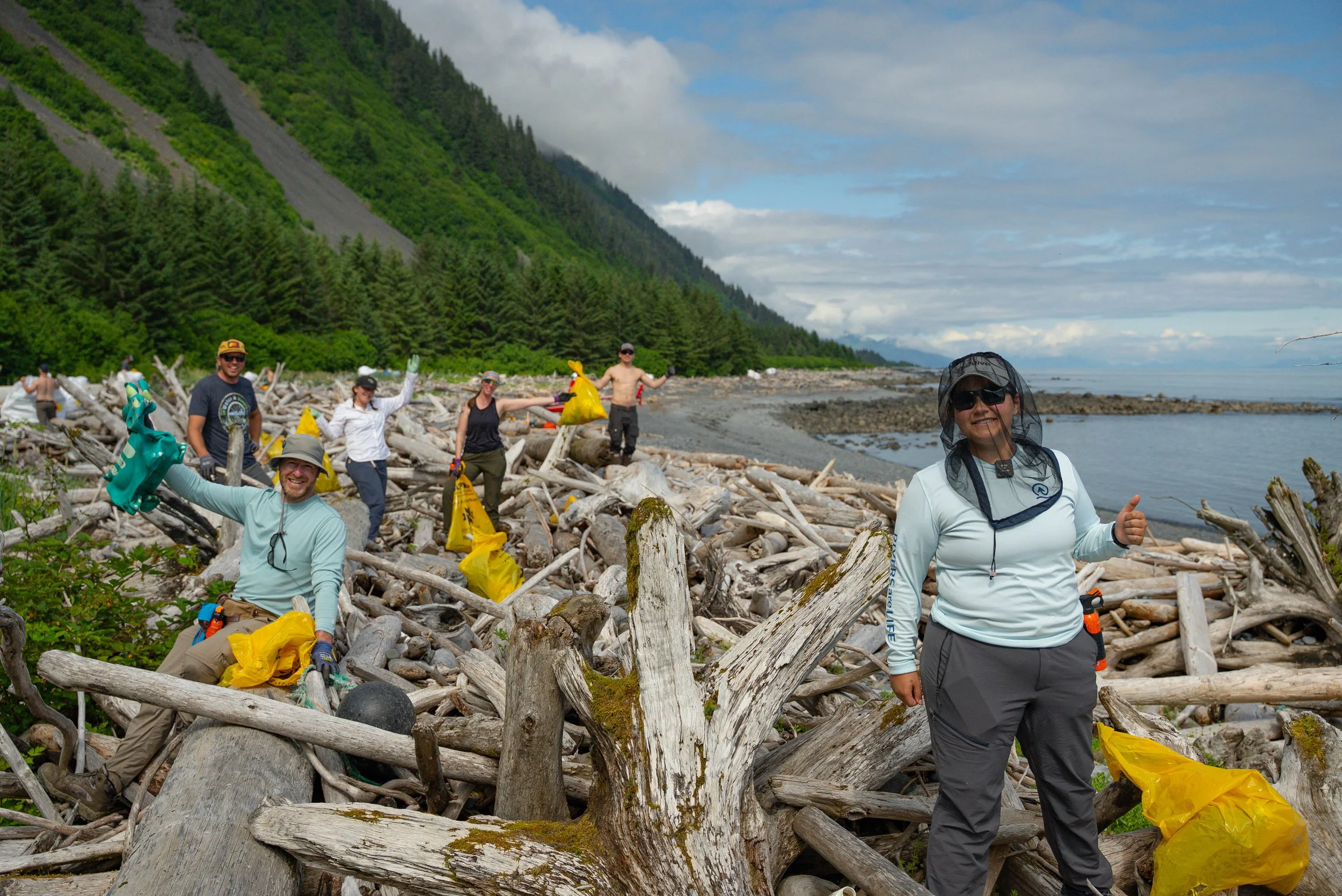
PROJECT #65
MONTAGUE ISLAND CLEANUP
June 26-July 5, 2025 | Montague Island, AK | Prince William Sound
10,000 + lbs
of trash removed from the Montague Island coastline
107
super sacks' worth of marine debris removed
6 days
of a program that is projected to continue for three years
Answering the Call to Alaska’s Rugged Shores
In the summer of 2025, the Rivers are Life team had an incredible opportunity to catch up with Gulf of Alaska Keeper (GoAK), the River Heroes that were highlighted in the 2022 film, Keepers of the North. They traveled to Alaska to join GoAK for one week of hands-on marine debris removal on the remote coastline of Montague Island. As volunteers, our team stepped into a project that is part of a massive, multi-year effort to clear one of the most heavily fouled shorelines in the United States. Montague Island, located in the Gulf of Alaska, is a critical habitat for fish, marine mammals, and birds—but it has been plagued by staggering amounts of marine debris, much of it derelict fishing gear and chemically treated lumber.
A Week of Hard Work and Unforgettable Experiences
Over the course of six days, our crew joined forces with GoAK’s trained professionals to help remove approximately 10,000 pounds of debris from the island’s shoreline. Each day brought long hours and challenging conditions—hauling massive nets, untangling line bundles, and moving heavy creosote-treated timbers. We camped aboard vessels, traveled to work sites by helicopter, and landed on rugged beaches where jagged reefs and strong tides make access nearly impossible by boat. Every lift, sling, and sack of debris brought us one step closer to restoring the health of this extraordinary ecosystem.
The Scale of the Problem and the Progress Being Made
Marine debris blankets Montague Island with densities reaching up to 30 tons per mile, much of it originating from far beyond Alaska’s borders. Around 70% of the plastic debris is commercial fishing gear—massive trawl nets, aquaculture baskets, buoys, and totes that entangle wildlife, damage habitat, and pollute the marine food web. The GoAK project is tackling this head-on, aiming to remove nearly 2,000 tons of debris over three seasons. Our week on the island gave us a firsthand look at just how complex and logistically challenging this type of cleanup can be, and how critical it is for the long-term health of Alaska’s coastal ecosystems.
Protecting Habitat, Supporting Communities
This work doesn’t just benefit wildlife—it protects the resources local and Alaska Native communities depend on. The shores of Montague Island and nearby Gore Point are essential for subsistence hunting and fishing, as well as the cultural and economic well-being of villages throughout Prince William Sound. By restoring these habitats, projects like this safeguard the marine and coastal species that are central to the lives of these communities.
A Shared Commitment to Cleaner Waters
Our time in Alaska was a reminder of why we do what we do: rivers, coastlines, and oceans are all part of the same connected system, and protecting one helps protect them all. Joining Gulf of Alaska Keeper’s mission, even for just one week, was a privilege and an inspiration. We left Montague Island tired, sore, and grateful—knowing that our efforts, alongside many others, are helping to restore one of the wildest and most important shorelines in North America. The fight against marine debris is massive, but with collaboration, grit, and a shared love for our waters, it’s a fight we can win.
A Power of Collective Action
Projects of this magnitude cannot be accomplished without the combined efforts of like-minded organizations. We couldn't have done this without the support of the following organizations:
GoAK for spearheading the 3-year project
Bass Pro Shops for outfitting our team with the proper rain gear
Grizzly Coolers for providing a cooler to the GoAK crew and dry bags and water bottles for the Rivers are Life crew
Mitten State for new Rivers are Life merch, including a UPF50 sun shirt
Dow for supporting our storytelling initiatives
